Fritextsökning
Artiklar per år
Innehållstyper
-

Dubbelt kapitaltillskott tar Neogaps cancerstudie vidare
Neogap Therapeutics har gjort en nyemission och även beviljats EU-stöd för att finansiera sin pågående kliniska studie på patienter med kolorektalcancer.
-

The first drugs to slow down Alzheimer’s – but what does it mean for patients?
New treatments for early Alzheimer’s are bringing hope to thousands of patients and their families. The question is, who will get the treatment, how will the right patients be found in time, and will the healthcare system’s resources be sufficient? Life Science Sweden has spoken to Swedish researchers in Alzheimer’s who voice cautious hope but also see further challenges.
-

Charlotta Gummeson leaves Sahlgrenska Science Park – “It feels sad and exciting at the same time”
With mixed emotions, Charlotta Gummeson will leave her position as CEO of Sahlgrenska Science Park in October. “It feels sad and exciting at the same time. I’ve been in the thick of things and part of the development for so long now, but I’m also looking forward and thinking about all the new things that there will be in a freer role,” she says to Life Science Sweden
-

Vinnova is going to establish a new innovation cluster
Vinnova, the Swedish Agency for Innovation Systems, has been commissioned by the government to establish a national innovation cluster for advanced medicines.
-

Tuberkulosbakterier ska svältas ut - ny substans prövas på människa
Det amerikanska forskningsföretaget Calibr planerar att under ett år genomföra en klinisk studie med ett nytt sorts läkemedels mot tuberkulos.
-

Hello Jenni Nordborg!
Life Science Sweden would like to know more about Jenni Nordborg and asks her about her new job, why she became a chemical engineer and who her role model is.
-

Great Swedish innovations: Eye treatment became a feather in Pharmacia’s cap
From complicated and sometimes risky surgery to a routine procedure. Pharmacia’s injectable Healon revolutionised the field of eye surgery - and is considered by us one of the most important contemporary Swedish innovations in the field of medicine.
-

“We aim to be a start-up company with an academic spirit”
Chronic pain and Alzheimer’s are two diseases that plague many people worldwide and seem impossible to cure. However, Huddinge-based company Alzecure is working on developing drugs for both conditions.
-

Biosimilars bring price pressure, but are they sufficiently used?
When biosimilars were introduced just over 16 years ago, hopes were raised that they would give many more patients access to effective but otherwise extremely expensive treatments with biological drugs. So, how well has Swedish healthcare used biosimilars? The answer partly depends on whom you ask.
-

Amorphous materials take centre stage when Orexo develops new formulations
Swift resolution but with maintained stability. Orexo’s new drug delivery platform tackles the problem of amorphous materials. “Our technology has the positive properties of the material, and it also cracks some of the problems,” says the company’s Research and Development Manager Robert Rönn.
-
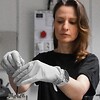
Ny metod för mikroskopi öppnar genväg till nya läkemedel
Forskare vid Chalmers har utvecklat en helt ny mikroskopiteknik för att kunna studera de minsta biologiska partiklarna i sitt naturliga tillstånd – och därmed öppna vägar för snabbare utveckling av nya läkemedel och vaccin.
-

Elicera får mångmiljonbidrag av EU för utveckling av CAR-T-terapi
Cell- och genterapibolaget Elicera Therapeutics tilldelas 2,5 miljoner euro, motsvarande drygt 26 miljoner kronor, i EU-finansiering för fortsatt utveckling av sin CAR-T-terapi mot B-cellslymfom.
-

Anna Törner: To kill your darlings
Hopes were high when Anna Törner and her colleague started a study on a dietary supplement that seemed unbelievably good. “Enthusiastically, we dreamed of exciting results and perhaps a publication in a high-impact journal,” she writes in a column.
-

Hello Angelica Loskog!
Life Science Sweden would like to know more about Angelica Loskog and interviews her about her life as a researcher.
-
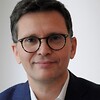
We will now publish more news in English – and offer yet another newsletter
Starting next week, Life Science Sweden will begin offering a newsletter entirely in English.
-

Miljonstöd till 14 life science-projekt för bättre hälsa
Nya tekniker för fixering av handfrakturer, AI-prediktion av blodtrycksfall och tidig detektion av bukspottkörtelcancer finns bland de 14 projekt för bättre hälsa som får miljonstöd av innovationsprogrammen Swelife och Medtech4health.
-
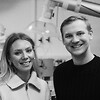
Startup-bolag får in fem miljoner för sin diagnostik av infektionssjukdomar
För sin teknologi att diagnostisera infektioner direkt på vårdcentraler eller i hemmet får nu startup-bolaget Videm fem miljoner i investeringar från EQT Foundation och kända affärsänglar.
-
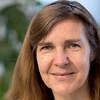
CAR-T therapies give continued hope: “Almost half of the patients have become disease-free”
become disease-free, at least of those treated with Yescarta, which are the ones I know best,” says Gunilla Enblad, Chairman of the national working group for CAR-T treatment.
-

Sweden and Denmark – this is how they choose their strategies
Scandinavia’s two major powers in pharmaceutical research have developed strategies for growth in life science, and both countries aim to become world leaders.
-
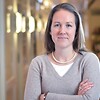
Column: Why there cannot be a complete cure for cancer – but there is certainly another way!
"Is there a new way we need to be thinking about how to prevent cancer?" Lucy Robertshaw reflects upon which is the smartest way to beat cancer.
-
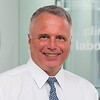
New diagnostic test soon ready for the market
-
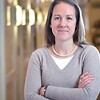
Lucy Robertshaw: There is a bio revolution happening right now
Lucy Robertshaw is both proud and excited to be taking the baton of moderating this year’s Pharma Outsourcing event.
-

Samtycke från patient – i många fall inte tillräckligt för databehandling
Vilka är konsekvenserna av att den Europeiska dataskyddsstyrelsen uttalat att försökspersoner i de flesta fall inte kan samtycka till hantering av data rörande dem? Advokaterna på Cirio Advokatbyrå reder ut.
-
Coordination of world-class research facilities
Four unique world-class research facilities are located just a few hours apart. Properly utilised, a Nordic centre for world-leading life science innovation and research could become a reality. Kajsa M Paulsson is the project leader for HALOS, driving the idea forward.